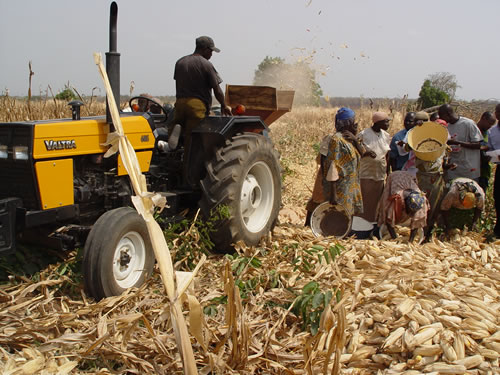FAO and experts from various agriculture-related agencies have identified lack of up-to-date database as a major factor militating against the development of agriculture in Nigeria.
The experts made the observation on Friday in Abuja at a one-day consultative meeting with “Key Stakeholders in Agriculture Statistics’’.
They said the identified lapses were also making the sector unattractive to both foreign and local investors and burying the country’s agricultural potentials.
Mr Suffyan Koroma, FAO Country Representative for Nigeria, noted that lack of adequate database to work with had continued to retard the growth of agribusiness in the country.
He said that the importance of data as a key component in the development of agriculture and other related areas could not be overemphasized.
Koroma said it was unfortunate that reliable and adequate data in Nigeria were never ready for meaningful development when required.
He said in most cases, various departments in the Federal Ministry of Agriculture and Rural Development submitted conflicting data which often distorted planning and management processes.
Koroma said for agriculture to move forward in Nigeria, there must be political will and right investment on data collection.
“FAO recommends that each country globally should carry out agric census every 10 years and most countries have been complying with the directive. The last time Nigeria had her own was in 1994,” he said.
According to him, data is an indicator for monitoring and evaluation which is vital to ensuring effective measuring and tracking implementation performance of all projects and action plan for development.
He therefore urged Federal Government to provide adequate data for FAO’s 2018-2022 agricultural development programme.
The News Agency of Nigeria (NAN) reports that participants from the Central Bank of Nigeria, World Bank, NIMET, Famine Early Warning Systems Network, USAID, ECOWAS, NBS, amongst others, attended the forum.
They also noted that absence of data was stalling the development of the agriculture sector, among other challenges.
They said without adequate data, the effort of President Muhammadu Buhari to reposition agriculture and make it the mainstay of the nation’s economy could be affected.
“Data is very essential for donor agencies to monitor the performance of countries on project implementation so that these countries may be targeted for additional assistance where it is badly needed, be it technical or financial.
“It also helps to identify the high-performers so that their best practices may be emulated by those countries showing slower progress,’’ they said.
The participants said that timely and adequate data would enable Nigeria and donor agencies plan their agricultural programme/business and focus attention on the underperformance of each sector.
They also challenged research institutes to always support their research findings with adequate data and publicise them rather than made it shelf findings.
The experts said each of the agriculture department, if well-funded, have the capacity to produce reliable and timely data to inform the nation’s agricultural development agenda.
They, however, called on all the Ministries, Departments and Agency’s (MDAs) to always ensure comprehensive data to allow all agriculture-related agencies to perform optimally. (NAN)

